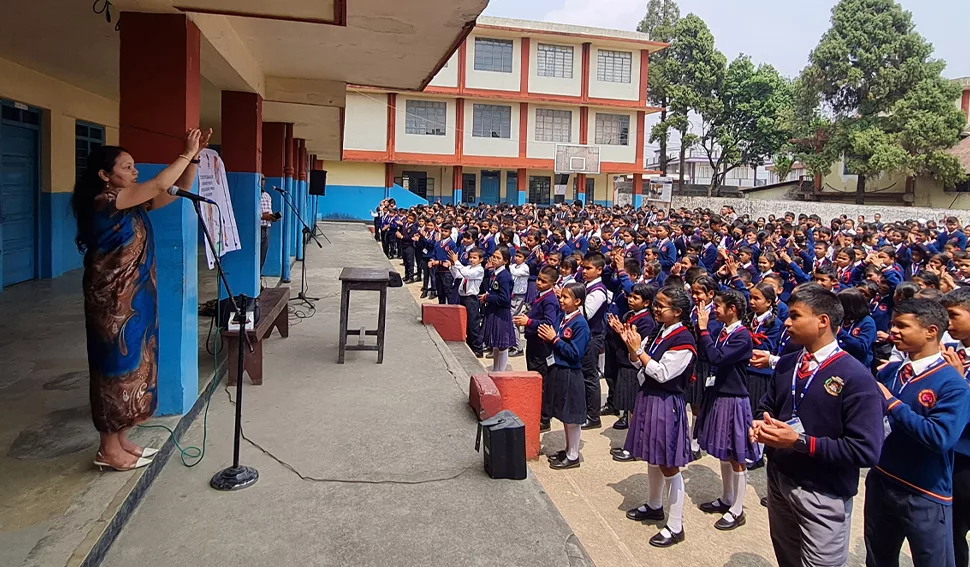The East Khasi Immunization Working Group has made it mandatory to present the immunization card during admission.
This is according to a letter sent by the Deputy Commissioner and Chairman, East Khasi Hills District Immunization Task Force, Shillong, to the District School Education Officer ((DSEO), East Khasi Hills) on September 22 last year.
The letter emphasizes that immunization is one of the most successful public health interventions in modern times.
About 91% of infants in Meghalaya were vaccinated with BCG, Hepatitis 8, OPV, PV, RVV, Pentavalent, MR vaccine between 2022 and 2023, protecting them against tuberculosis, viral hepatitis B, spinal cord Infectious diseases such as polio, diphtheria, tetanus, whooping cough, Haemophilus, rotavirus, measles, and rubella can cause severe disability or death.
However, these figures mask significant differences across regions and regions across the state, posing an outbreak threat to vulnerable children. Compared to other districts with higher immunization coverage, East Khasi Hills accounts for 88% of the immunization coverage.
Measles outbreak cases remain distributed, exposing immune deficiencies in the population. Schools can be breeding grounds for disease transmission due to close contact between students. Immunization can help reduce the likelihood of disease transmission, especially for highly infectious diseases such as measles or whooping cough. disease.
Some students may be more susceptible to infection due to compromised immune systems or underlying health conditions, and immunization helps protect these vulnerable populations who may not be able to vaccinate themselves.
Immunization cards help schools verify that students have received the vaccinations required for their age and grade level.
It ensures that students are fully protected from preventable diseases. Immunization cards provide a systematic way to track and monitor student immunization status.
“This information helps public health authorities monitor disease prevalence in schools and control the spread of infectious diseases,” the letter said.
Immunization cards help prevent disease outbreaks within the school community by confirming that students have received necessary vaccinations, thereby reducing the likelihood of disease outbreaks and protecting the health of students and staff.
Through mandatory immunization, schools aim to create a safer and healthier learning environment for all students, helping to improve student attendance and academic performance
The Deputy Issues Commissioner urged the DSEO to issue instructions to all schools to ensure that immunization cards are produced and submitted at the time of admission.
Teachers should be alert to children with symptoms such as fever, sneezing, runny nose, mild cough, runny nose, rash, diarrhea, etc., and report them to the relevant health department.


